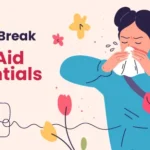Table of Contents:
- Introduction
- What is Creatine Monohydrate?
- How Creatine Works in the Body
- Creatine and Heart Health: What Does the Research Say?
- Potential Risks of Creatine
- Final Thoughts
Introduction
Creatine monohydrate is one of the most researched and widely consumed supplements, especially in sports and bodybuilding. It increases muscle mass, strength, and overall performance. Therefore, creatine supplements have been quite in demand lately among bodybuilders and competitive athletes.
Research suggests that creatine monohydrate is generally safe when used appropriately. However, as with any supplement, there are concerns about creatine and heart health, particularly for people with underlying health conditions.
Read on to find out whether creatine is good for your heart and causes problems like palpitations and whether one should be concerned about taking these supplements.
What is Creatine Monohydrate?
Creatine monohydrate is a naturally occurring nitrogen-containing organic compound found in muscle cells. It helps produce energy, especially during high-intensity activities like weightlifting or sprinting. While your body produces some creatine naturally, it can also be obtained from foods like red meat and fish.
Many athletes and fitness enthusiasts use creatine monohydrate as a supplement to enhance their workout performance and support muscle recovery.
Despite its benefits, many individuals ask, “Does creatine affect your heart?” When taken in safe dosages recommended by a healthcare professional, creatine does not negatively affect the heart. However, individuals with some preexisting conditions should always consult their doctor before starting any supplements.
How Creatine Works in the Body
Creatine is a natural substance found in your body, mainly in muscles and the brain. It helps produce energy by converting it into phosphocreatine, which stores high-energy phosphate groups. When your body needs quick energy, phosphocreatine donates a phosphate to adenosine diphosphate (ADP) to regenerate adenosine triphosphate (ATP), the main energy carrier. This process is needed during short bursts of intense activity, like sprinting or weightlifting.
By increasing the amount of creatine in your muscles through supplements, you can enhance your ability to perform high-intensity exercises. Additionally, creatine helps muscles retain water, which can lead to increased muscle size and improved recovery after workouts.
Also read: ACLS And Epinephrine
Creatine and Heart Health: What Does the Research Say?
Research on creatine and heart health is still developing, but existing studies suggest that creatine does not harm the heart when taken responsibly. For example, a study found that creatine may help improve heart function in individuals with heart failure. Increasing the availability of energy (ATP) in the heart muscles, creatine could help the heart work more efficiently, especially in those whose heart function is compromised. This finding suggests that creatine and heart health may work together to improve heart function.
Can Creatine Cause Heart Palpitations?
One common concern is whether creatine can cause heart palpitations. Palpitations are irregular heartbeats that can make you feel like your heart is racing, pounding, or fluttering. These sensations may indicate some serious conditions.
There is no strong evidence directly linking creatine to heart palpitations. However, if someone experiences palpitations while taking creatine, it may be due to factors like dehydration or high caffeine intake, which are often combined with creatine supplements in energy drinks or pre-workout formulas. Dehydration can strain the heart, leading to palpitations, while caffeine can stimulate the heart, potentially causing irregular beats.
Creatine and Atrial Fibrillation (AFib)
Atrial fibrillation (AFib) is a common heart rhythm disorder that causes the heart to beat irregularly. People with AFib may wonder about the connection between creatine and AFib and whether it can aggravate existing heart conditions. There is no concrete evidence that creatine causes or worsens AFib directly. However, because AFib affects heart rhythm, individuals with this condition should consult their doctor before taking any supplements, including creatine.
Does Creatine Affect Heart Rate?
Another common concern is, does creatine affects heart rate. For most individuals, creatine does not seem to directly influence resting heart rate or cause significant changes in heart function. However, factors such as dehydration, stimulant use, or overexertion during exercise can impact heart rate while taking creatine.
If you are combining creatine with high-intensity workouts or pre-workout supplements that contain stimulants like caffeine, you might notice an elevated heart rate due to those other factors rather than the creatine itself. This is why it is important to stay hydrated and monitor how your body reacts to the combination of supplements and intense physical activity.
What Causes Heart Problems from Supplements?
Some people worry about supplements causing heart issues, leading to the question: can creatine cause heart problems? While creatine itself does not appear to cause heart problems in healthy individuals, improper use or combining creatine with other supplements, such as stimulants, could pose risks.
Supplements that dehydrate the body, raise blood pressure or overstimulate the nervous system can strain the heart. Therefore, individuals with pre-existing heart conditions should always consult a healthcare provider before starting creatine or any new supplement regimen.
When to Worry About Creatine and Heart Health
If you experience symptoms such as heart palpitations, chest pain, or shortness of breath while taking creatine, you must seek medical attention immediately. These symptoms may not be directly related to creatine but could indicate an underlying health issue or the misuse of other supplements.
Asking a healthcare provider if creatine is bad for your heart in your specific situation can help prevent complications. For people with no pre-existing heart conditions, creatine is unlikely to cause major heart problems. However, moderation and proper hydration are key when using any supplement.
Potential Risks of Creatine
Is creatine bad for you in large doses? Up to 5g daily for up to 18 months is considered safe for adults. Lower doses are recommended for children based on age and weight. Some people follow a loading phase, taking up to 20g daily for 5–7 days to saturate muscles with creatine more quickly. After the loading phase, a lower maintenance dose of 3–5g daily is usually recommended.
However, taking more than the recommended dose of creatine can lead to dehydration, digestive issues, and kidney strain. These side effects may indirectly impact heart health, as dehydration and kidney problems can place additional stress on the cardiovascular system. Individuals with kidney or heart conditions should be particularly cautious and consult a healthcare provider.
Creatine and Hydration
Staying hydrated is important when taking creatine. Since creatine draws water into the muscles, insufficient fluid intake can lead to dehydration.
Dehydration can negatively impact heart function, potentially causing palpitations or an elevated heart rate. Ensuring proper hydration helps avoid any heart-related side effects when taking creatine.
Who Should Avoid Creatine?
While creatine is safe for most people, certain individuals should avoid it or use it cautiously. If you have a history of kidney problems or heart disease or are taking medications that affect kidney or heart function, consult your healthcare provider before starting creatine.
Also read: ACLS Drugs For Bradycardia
Balancing Creatine Use for a Healthier Heart!
For most people, creatine is safe and effective, particularly when used responsibly. However, concerns about creatine and heart health are valid, especially for those with pre-existing heart conditions. There is no direct evidence linking creatine to major heart problems or conditions like AFib, but staying hydrated and using the supplement in moderation is key to a healthier heart.
Consider enrolling in first aid courses to take necessary steps in athletic emergencies and prevent major mishaps.







